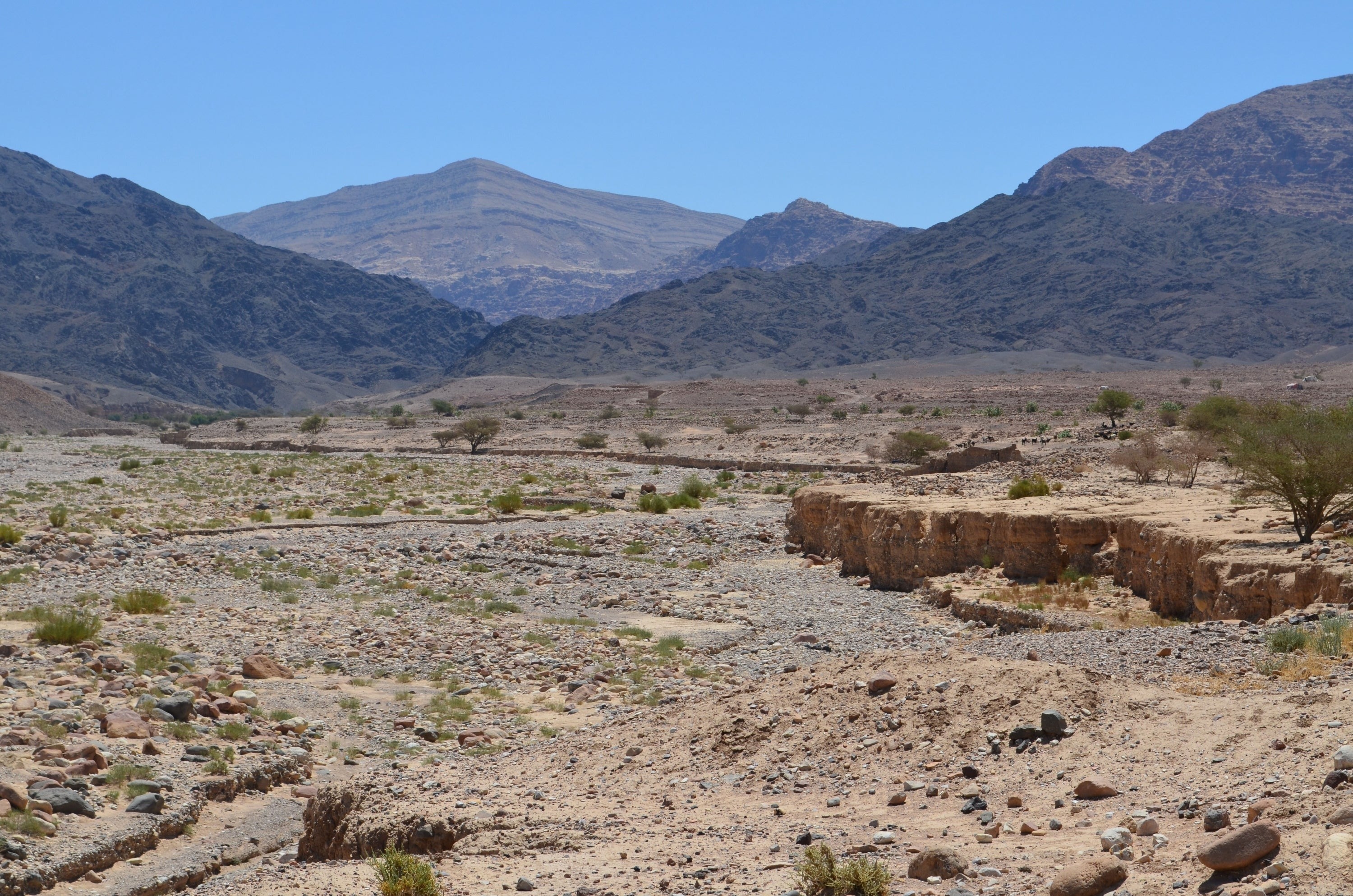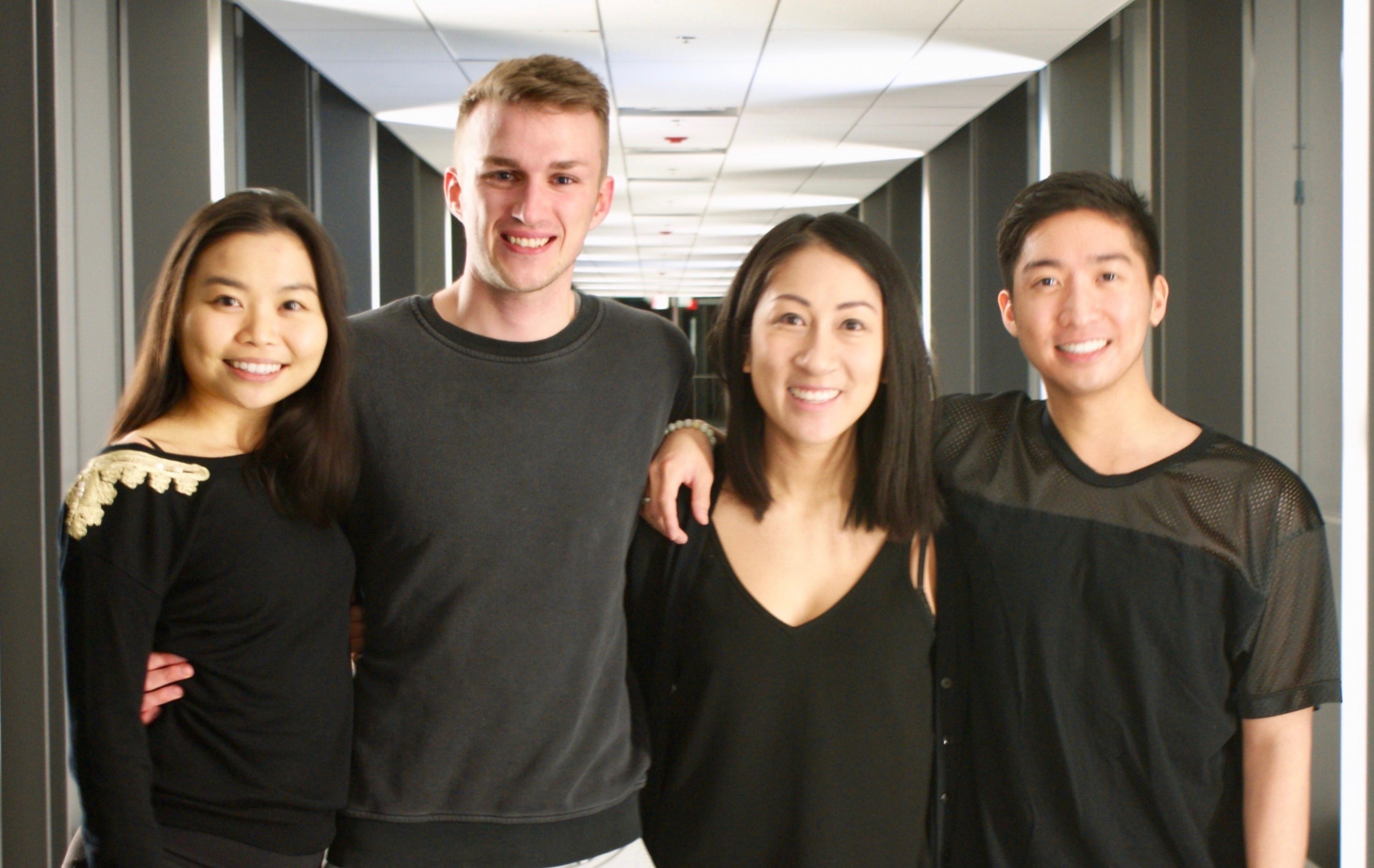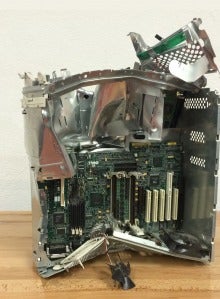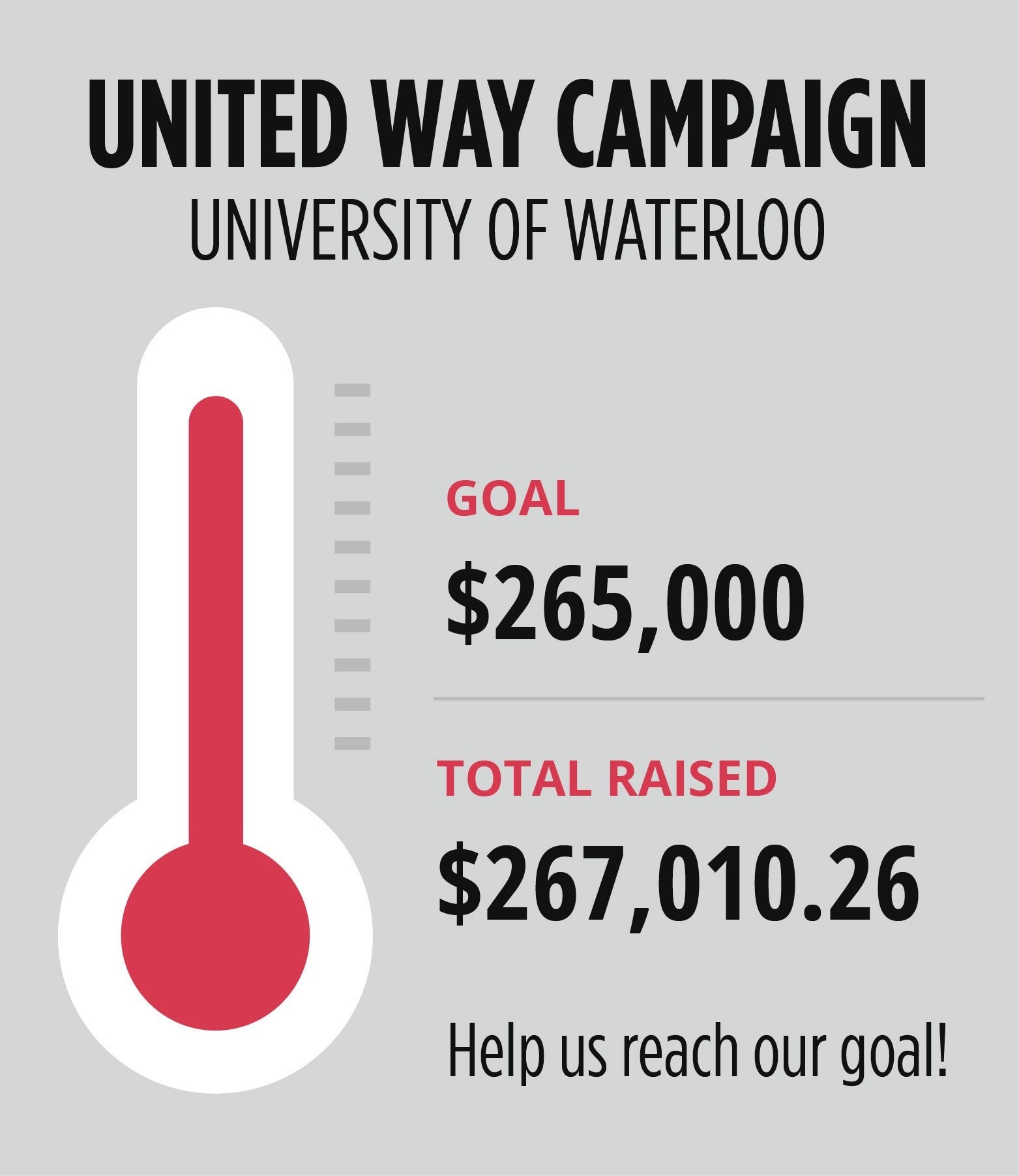Editor:
Brandon Sweet
University Communications
bulletin@uwaterloo.ca
Campus ceremony marks National Day of Remembrance and Action
Today the University of Waterloo will host a vigil to mark the National Day of Remembrance and Action on Violence Against Women. Established in 1991 by the Parliament of Canada, December 6 marks the anniversary of the murders in 1989 of 14 young women at the engineering school, l'École Polytechnique de Montréal. The women, many of them young engineering students, were killed by a man who claimed feminism was ruining his life.
The campus event is being held today, Tuesday, December 6 at 10:30 a.m. at the Sedra Student Design Centre in Engineering 5. Please consider attending.
Speakers at the vigil include:
- Feridun Hamdullahpur, President and Vice-Chancellor
- Mary Wells, Waterloo Engineering’s Associate Dean of Outreach
- Diana Parry, Professor in the Faculty of Applied Health Sciences, and Special Advisor to the president on women's and gender issues.
- Catherine Fife, MPP for Kitchener-Waterloo
The December 6 National Day of Remembrance also gives Canadians an opportunity to reflect on violence against women in our society as a whole and to consider ways to eliminate all forms of violence against women and girls.
The University of Waterloo, under Wells’ leadership, is working to bring more women into the engineering profession through the Faculty’s community outreach programs. The Faculty of Engineering runs an annual event called Go ENG Girl for students in Grade 7 – 10. Another special event is a conference for Grade 11 girls, which puts students in touch with young women who are working in engineering.
We are an institution deeply committed to gender equity. As the only Canadian university to help lead the UN Women’s HeForShe IMPACT 10x10x10 campaign, we have an important role to play in remembering those lives lost at l’Ecole Polytechnique, and in working toward a world free of gender violence.
Researchers discover polluted river from the Bronze Age

Industrial pollution may seem like a modern phenomenon, but in fact, an international team of researchers may have discovered what could be the world’s first polluted river, contaminated approximately 7,000 years ago.
In this now-dry riverbed in the Wadi Faynan region of southern Jordan, Professor Russell Adams, from the Department of Anthropology at the University of Waterloo, and his colleagues found evidence of early pollution caused by the combustion of copper. Neolithic humans here may have been in the early stages of developing metallurgy by learning how to smelt.
The research findings, published in Science of the Total Environment, shed light on a turning point in history, when humans began moving from making tools out of stones to making tools out of metal. This period, known as the Chalcolithic or Copper Age, is a transitional period between the late Neolithic or Stone Age and the beginning of the Bronze Age.
“These populations were experimenting with fire, experimenting with pottery and experimenting with copper ores, and all three of these components are part of the early production of copper metals from ores,” said Adams. “The technological innovation and the spread of the adoption and use of metals in society mark the beginning of the modern world.”
People created copper at this time by combining charcoal and the blue-green copper ore found in abundance in this area in pottery crucibles or vessels and heating the mixture over a fire. The process was time-consuming and labour-intensive and, for this reason, it took thousands of years before copper became a central part of human societies.
Many of the objects created in the earliest phase of copper production were primarily symbolic and fulfilled a social function within society. Attaining rare and exotic items was a way in which individuals attained prestige.
As time passed, communities in the region grew larger and copper production expanded. People built mines, then large smelting furnaces and factories by about 2600 BC.
“This region is home to the world’s first industrial revolution,” said Adams. “This really was the centre of innovative technology.”
But people paid a heavy price for the increased metal production. Slag, the waste product of smelting, remained. It contained metals such as copper, lead, zinc, cadmium, and even arsenic, mercury and thalium. Plants absorbed these metals, people and animals such as goats and sheep ate them, and so the contaminants bioaccumulated in the environment.
Adams believes the pollution from thousands of years of copper mining and production must have led to widespread health problems in ancient populations. Infertility, malformations and premature death would have been some of the effects. Researchers have found high levels of copper and lead in human bones dating back to the Roman period.
Adams and his international team of researchers are now trying to expand the analysis of the effects of this pollution to the Bronze Age, which began around 3200 BC. The Faynan region has a long history of human occupation, and the team is examining the extent and spread of this pollution at the time when metals and their industrial scale production became central to human societies.
Team Epoch heading to Hult Prize Regionals

Team Epoch members Jade Choy, Scott Forsyth, Lisa Tran, and Keith Choy.
This is an excerpt of an article originally published on the School of Accounting and Finance's website.
On Thursday, November 24, Team Epoch, a diverse team with members from the School of Accounting & Finance (SAF), Applied Health Studies (AHS), and the Science & Business program successfully pitched their solution for the 2017 Hult Prize challenge at the Hult Prize@ UWaterloo event. Over 50 teams from uWaterloo tackled this year’s challenge. Team Epoch – Keith Choy (recent MAcc grad), Jade Choy (AFM program), Scott Forsyth (AHS), and Lisa Tran (Science & Business) – was selected during the final pitch competition to represent Waterloo at the Regional Finals.
Read the rest of the article on the School of Accounting and Finance website.
Campus receives thanks after Giving Tuesday
A message from the Office of Advancement
Last week, the response to Giving Tuesday showed us once again how much our donors care about our students. A full and relevant educational experience is a priority for Waterloo and, clearly, it’s important to our supporters as well.
Together, 214 donors, including many staff, faculty, and retirees, gave over $52,000 to forge a learning environment that encourages and celebrates academic success. That includes $8,355 to provide more International Experience Awards to students, which will be worth almost $17,000 when matched by the University.
Thank you to everyone who helped to ensure that curious minds have the resources they need to ask, explore, create, and apply.
Tuesday's notes
'Tis the season for office closures! The Registrar’s Office and Student Awards & Financial Aid will be closing twice this week - tomorrow at 11:30 a.m. for a holiday event, and then on Friday, December 9 at 11:45 a.m. The offices will reopen at 1:30 p.m. both days, and the drop box will be available in case anything needs to be dropped off.
The Science Undergraduate Office in STC 2031 will be closed on the morning of Wednesday, December 7, opening at 10:30 a.m., due to a staff training event. On Monday, December 12, the SUO will be closed from 11:45 a.m. to 1:45 p.m. for a staff event. Check the SUO webpage for regular office hours.

A Digital Abstinence Symposium will be taking place at the Critical Media Lab at 44 Gaukel Street in Kitchener on Wednesday, December 7 from 4:00 p.m. to 6:00 p.m. Stephen Trothen and Professor Marcel O’Gorman will deliver opening remarks, and will be followed by 15 two-minute student presentations and displays of “objects-to-think-with” dealing with the politics of unplugging in the Information Age. Providing a critical response will be Professor Ronald Broglio of Arizona State University. And afterwards? A Posthuman Potluck, of course.
Many IT professionals from across campus will be attending the annual WatITis conference today. WatITis is a one day conference for those involved in IT planning, support and decision making at the University and is an opportunity to see what others are doing on campus in information technology, to exchange ideas, and make new contacts.
Link of the day
National Day of Remembrance and Action on Violence Against Women
When and where
University Club Christmas Lunch Buffet, Monday, November 28 to Friday, December 23, 11:30 a.m. to 2:00 p.m., University Club.
Computer Science Education Week, Monday, December 5 to Sunday, December 11.
Pre-examination study days, Tuesday, December 6 and Wednesday, December 7.
WatITis conference, Tuesday, December 6, Science Teaching Complex.
National Day of Remembrance and Action on Violence Against Women vigil, Tuesday, December 6, 10:30 a.m., Sedra Student Design Centre, Engineering 5.
Faculty Association Fall General Meeting, Tuesday, December 6, 12:00 p.m. to 2:00 p.m., MC 4020. Lunch provided.
GreenHouse Social Impact Showcase, Tuesday, December 6, 4:00 p.m., St. Paul’s Alumni Hall.
Master of Business, Entrepreneurship and Technology (MBET) Program Webinar, Tuesday, December 6, 5:30 p.m.
Kinesiology Lab Days, Wednesday, December 7 to Friday, December 9.
Women in Math present "Responding to Disrespectful Communications," Wednesday, December 7, 12:00 p.m., MC 5501.
The Library presents Copyright & Licensing for Teaching, Wednesday, December 7, 12:00 p.m., DC 1568.
Faculty Association Town Hall Meeting for Lecturers, Wednesday, December 7, 12:30 p.m. to 2:00 p.m., STC 0010.
Science HeForShe Working Group presents Microagressions in the SETT Workplace, Wednesday, December 7, 1:30 p.m., MC 2038.
Cognitive Science Confessions: My biggest research mistakes, Wednesday, December 7, 3:00 p.m. to 5:20 p.m., HH 1102.
Optimization Seminar featuring Dr. Yurii Nesterov, Wednesday, December 7, 3:30 p.m., MC 5501.
Retirement reception for May Yan, Wednesday, December 7, 4:00 p.m., Book Store.
Digital Abstinence Symposium, Wednesday, December 7, 4:00 p.m., Critical Media Lab, 44 Gaukel Street, Kitchener.
Leonard Cohen: Film Tribute night, Wednesday, December 7, 4:00 p.m., HH 123.
Gustav Bakos Observatory Tour, Wednesday, December 7, 7:30 p.m., PHY 150.
Examination period, Thursday, December 8 to Thursday, December 22.
Becoming a better man - Working to end gender-based violence, Thursday, December 8, 9:30 a.m., Renison University College.
LEARN Instructor User Group (CTE686), Thursday, December 8, 12:00 p.m. to 1:00 p.m., EV1 241. Watch the livestream.
The Waterloo Institute for Nanotechnology Presents Mechanochemically Prepared Nanocomposite Reactive Materials, Thursday, December 8, 1:30 p.m., QNC 1501.
Algebraic Graph Theory Seminar featuring Dr. Chris Godsil, Thursday, December 8, 2:00 p.m., MC 6486.
Pure Mathematics Analysis Seminar featuring Martijn Caspers, Utrecht University, “Absence of Cartan subalgebras for right angled Hecke von Neumann algebras," Thursday, December 8, 3:30 p.m., MC 5417.
Physics and Astronomy present "Beyond Triplet: Unconventional High-Spin Superconductivity in a Topological Semimetal," Thursday, December 8, 4:00 p.m., PHY 150.
Fine Arts Life Drawing session, Thursday, December 8, 6:30 p.m., East Campus Hall.
Online examination days, Friday, December 9 and Saturday, December 10.
The Office of Research will be closed on Friday, December 9, 11:30 a.m. to 1:30 p.m., for its annual holiday lunch.
Retirement celebration for Janet Metz of CECA, Friday, December 9, 3:00 p.m. to 5:00 p.m., TC 2218.
St. Jerome's Lectures in the Catholic Experience featuring Shane Claiborne, "The Scandal of Grace," Friday, December 9, 7:30 p.m., STJ 1004.
Workshop: Strategies and Stories of Resilience and Transformation, Sunday, December 11, 2:00 p.m., Dunker Family Lounge, Renison University College.
Kinesiology Lab Days, Monday, December 12 to Friday, December 16.
German Studies Forum 2016, hosted by the Waterloo Centre for German Studies. Monday, December 12, 10:30 a.m. to 3:00 p.m., Registration required.
Deadline for students to be "Fees Arranged," Tuesday, December 13.
WISE Lecture Series featuring Daniela Roeper, Borealis Wind, “Experimental and Computational Optimization of a Wind Turbine Blade De-Icing System,” Tuesday, December 13, 10:30 a.m., CPH 4333.
Gender and Equity Scholarship Series featuring Madhur Anand, “A Sample Size of None: Creating Your Own Career Path,” Tuesday, December 13, 11:30 a.m. to 1:00 p.m., MC 5501.
University Club Christmas Dinner Buffet, Wednesday, December 14, 5:00 p.m. to 8:00 p.m., University Club.
Network for Aging Research Public Lecture featuring Julie Robillard, Assistant Professor of Neurology, Faculty of Medicine, University of British Columbia, “Aging in a technological world: bridging disciplines to tackle the dementia epidemic,” Thursday, December 15, 10:30 a.m., AHS 1689. RSVP to sbodemer@uwaterloo.ca by noon on Monday, December 12.
The Writing Centre presents Dissertation Boot Camp, Monday, December 19 to Thursday, December 22.
Master of Business, Entrepreneurship and Technology (MBET) Program Webinar, Tuesday, December 20, 10:30 a.m.
Waterloo Women's Wednesdays: Holiday Luncheon, Tuesday, December 20, 12:00 p.m., University Club.
Holiday season closure, Saturday, December 24 to Monday, January 2. Most university buildings and services closed.
